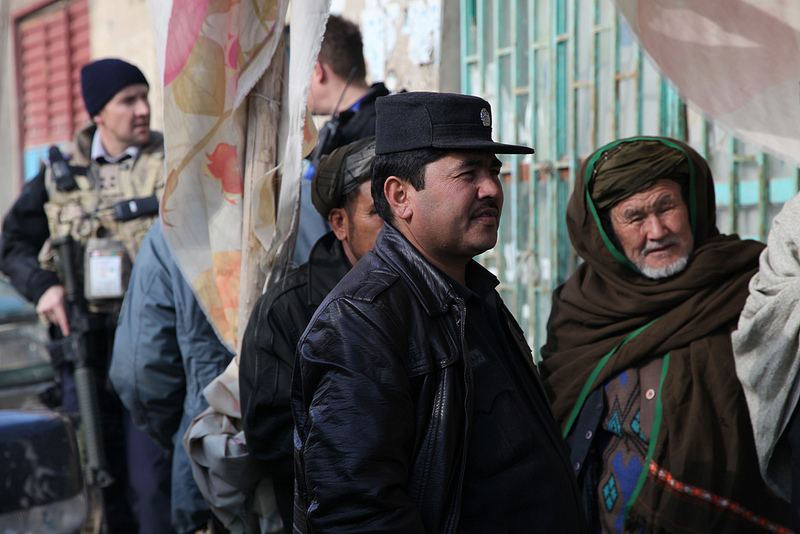EUPOL Afghanistan: a reviewable and criticized record

(BRUSSELS2) Speaking on the occasion of the assessment of the French withdrawal operation in Afghanistan, on February 26, MP Philippe Meunier (UMP - right) - who co-wrote the report for the National Assembly - did not had quite harsh words for the European training operation of the police Afghan. He thus underlined the questionable balance sheet of the EUPOL Afghanistan mission, its high cost (61 million euros), the absence of evaluation, the lack of follow-up as well as the impossibility of going to the field " who " contrast "in a big way with the way" whose French work in Wardak ».
Few concrete and field trips for Eupol
Indeed, in detail, the draft report - of which B2 had a copy - cuts a real "short" for the European mission. Written with the deputy of the PS, Philippe Nauche, it points to " training (which) remains confined to a level which is intended to be "strategic": courses are given in Kabul and in six major Afghan cities, without the police trainers accompanying the students in the field, in concrete operations. "Certainly the approach of training trainers" looks good “emphasizes the rapporteurs” but it suffers from a lack of follow-up in the partnership with the Afghan authorities. Very often, in fact, trained personnel return to their initial post, far from being able to disseminate the lessons given during EUPOL presentations. »
But success for the French gendarmerie
A situation which contrasts with the training program of the Afghan gendarmerie set up by the French army in Wardak. A program " more operational “underline the rapporteurs. A team of 41 French gendarmes, as well as two personnel from the SSA, two from the DPSD and 2 transmitters are currently deployed. It includes field work. " In particular, trainers and students are housed on the same site and the trainers go to the field. » 1 students are currently in training there, and 090 students have been trained since 4, including 900 in the Wardak school alone. “They benefit from a seasoning that is unparalleled with the work offered within the framework of EUPOL. »
No indicators of success
EUPOL Afghanistan has few tangible results” points out the report. “To date, the European Union mission has not defined performance indicators – except, it is true, the actual delivery of slideshows – and even less had the means to monitor the training results. »
Marginalization of France
More generally, the rapporteurs complain that France is " particularly marginalized in this system. In addition to the almost exclusive reference to Anglo-Saxon rules of procedure, the management of the mission is essentially British: the United Kingdom obtained four of the six main positions, only one going to France whose share in the project budget is however superior. »
Comment: criticisms that lack substance
One has the impression to read the report that it is a little: "fortunately, the French are there". Even if the work of the French gendarmes in Afghanistan is commendable and useful, and that the European mission is open to criticism, doing tons of it is a bit exaggerated. And the inconsistencies seem a bit "legendary" in this report.
1° The two missions - French and European - have nothing to do beforehand. Their goal is different. One, the training of field police; on the other, the training of judicial police levels.
2° If the French are not present in this mission, it is perhaps and without doubt above all because they have presented only a few candidates and personnel for EUPOL Afghanistan. A mission that suffers structurally - B2 has echoed this on several occasions - from a lack of staff! but also also of a certain political will of the Member States.
3° As for the "higher" share in the budget, this remark is more than surprising. The budget for this (civilian) mission is, in fact, covered by the general budget of the European Union. And there is no specific contribution as for the military missions (except precisely for the dispatch of seconded national experts).
However, everything is rosy at EUPOL Afghanistan. No, probably not... But the approximations (more journalistic 🙂 than parliamentary) do not really help to identify the problem.
